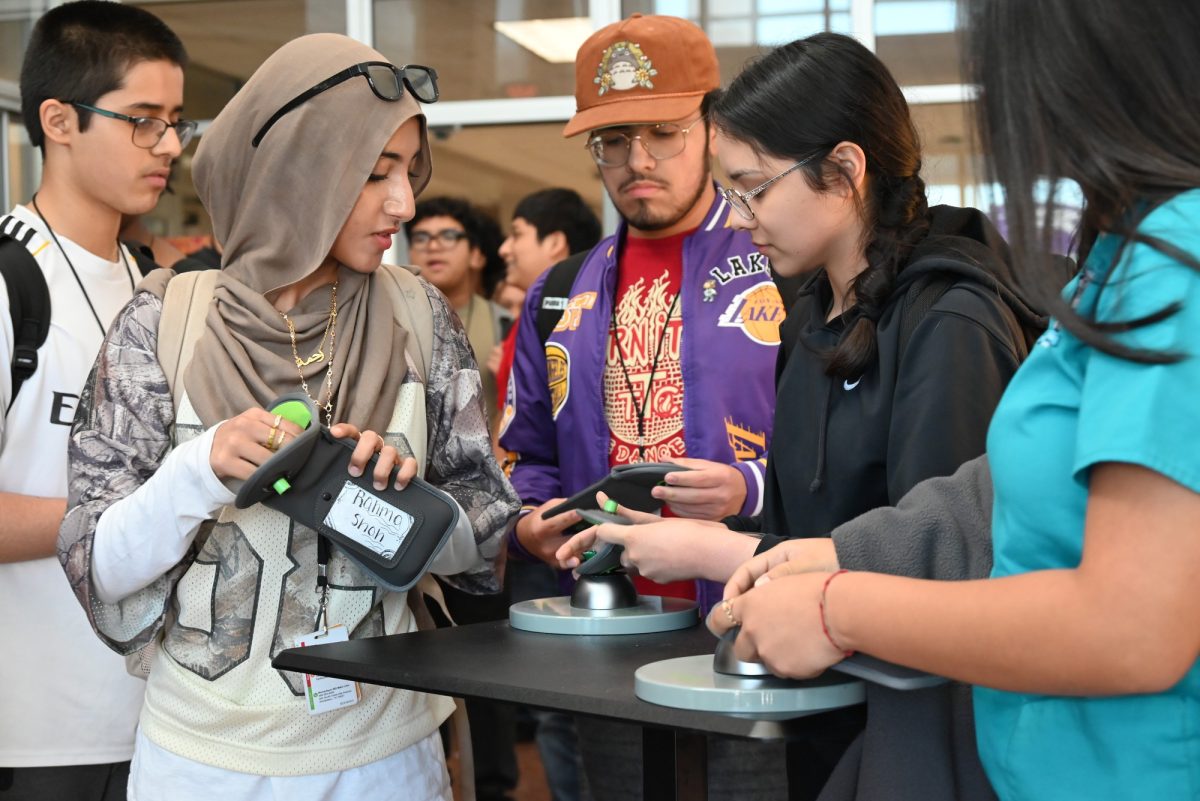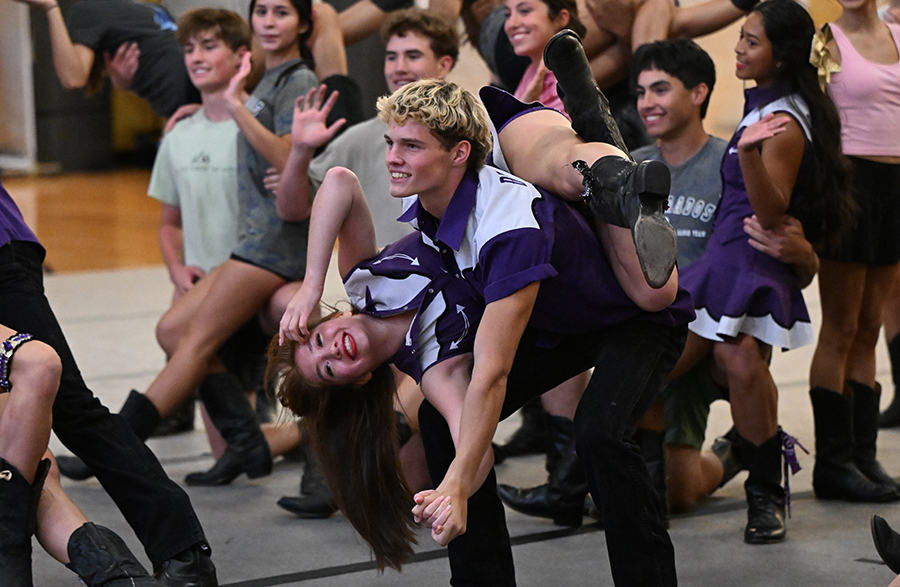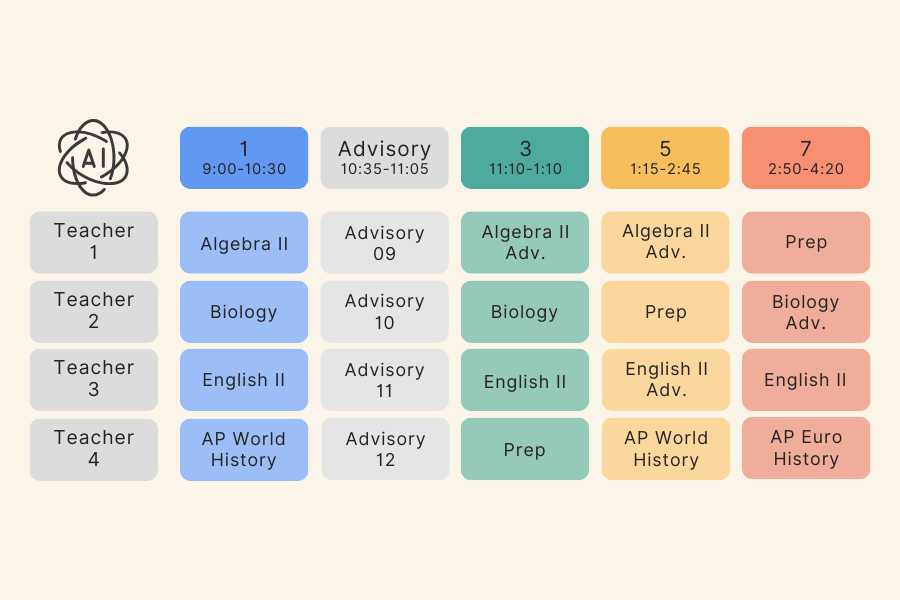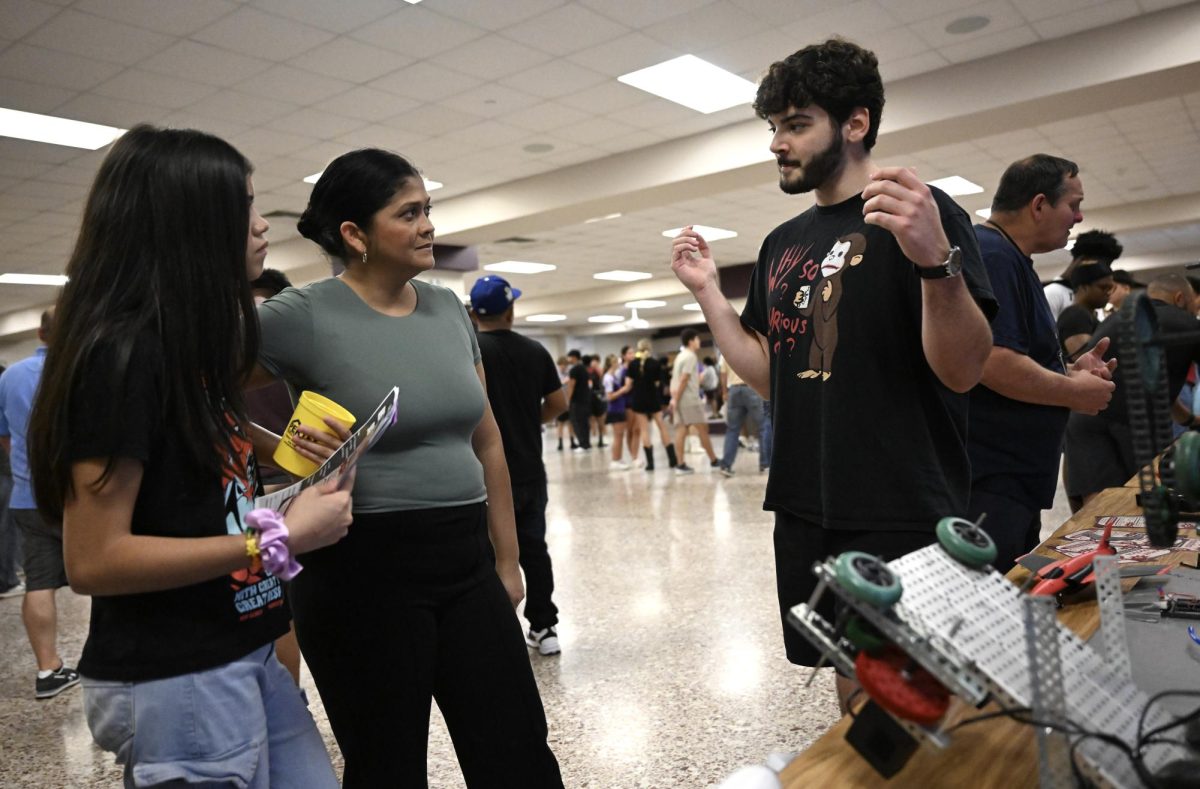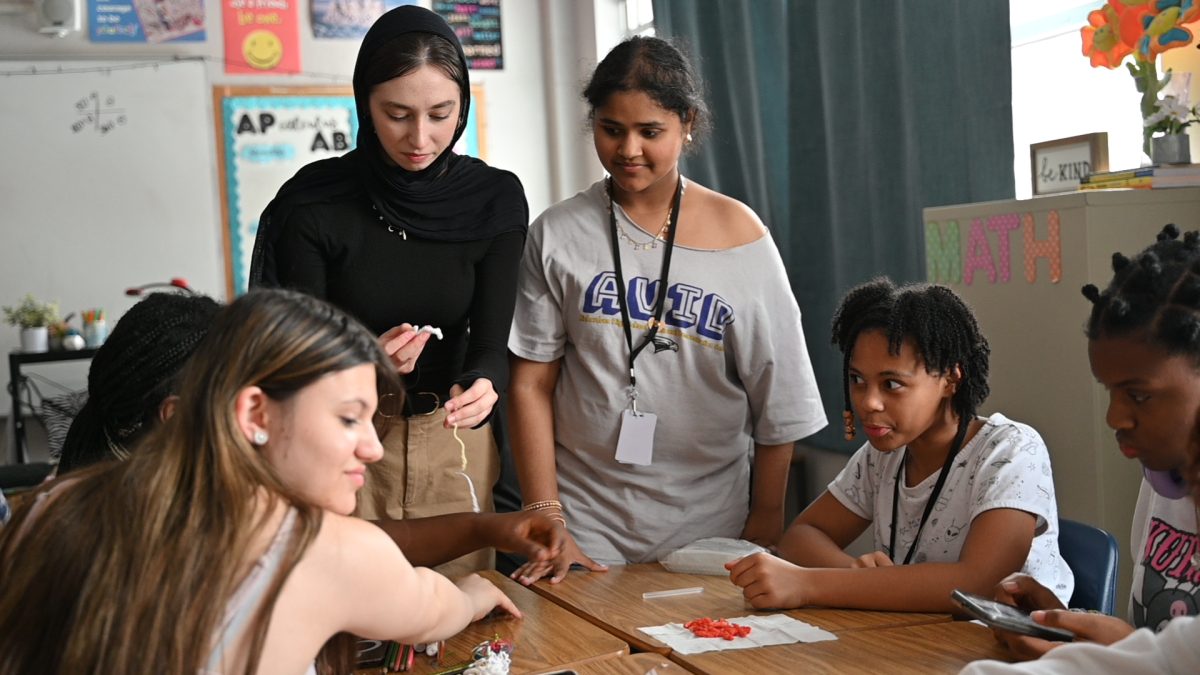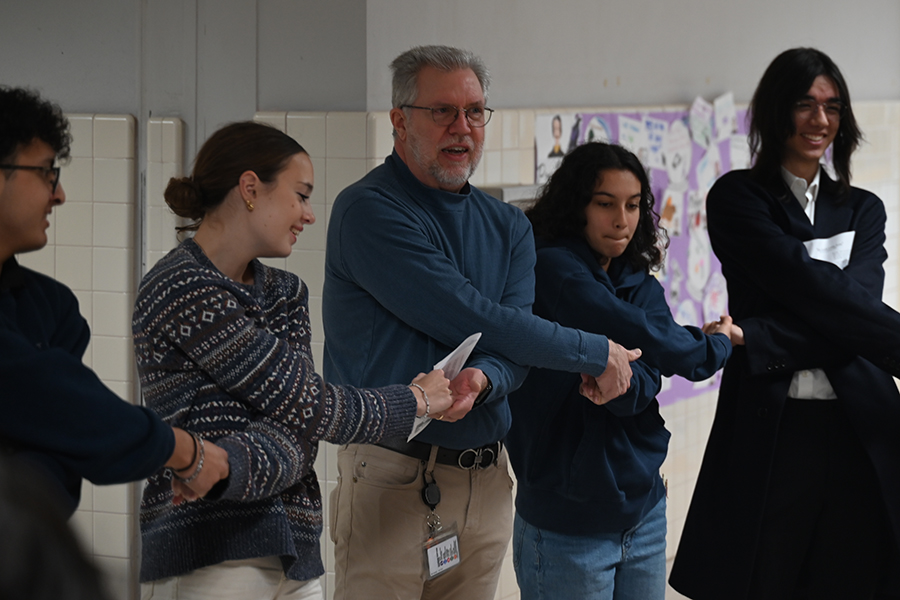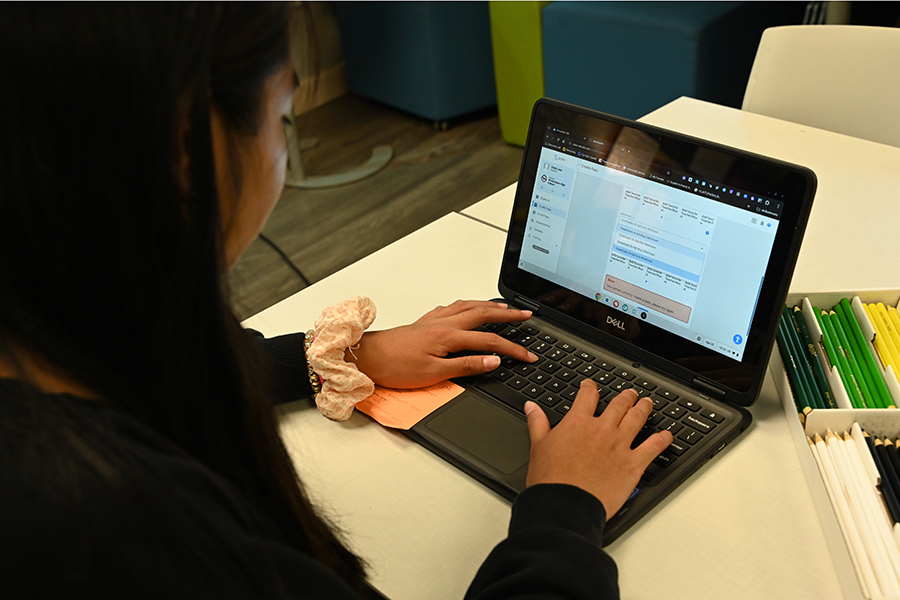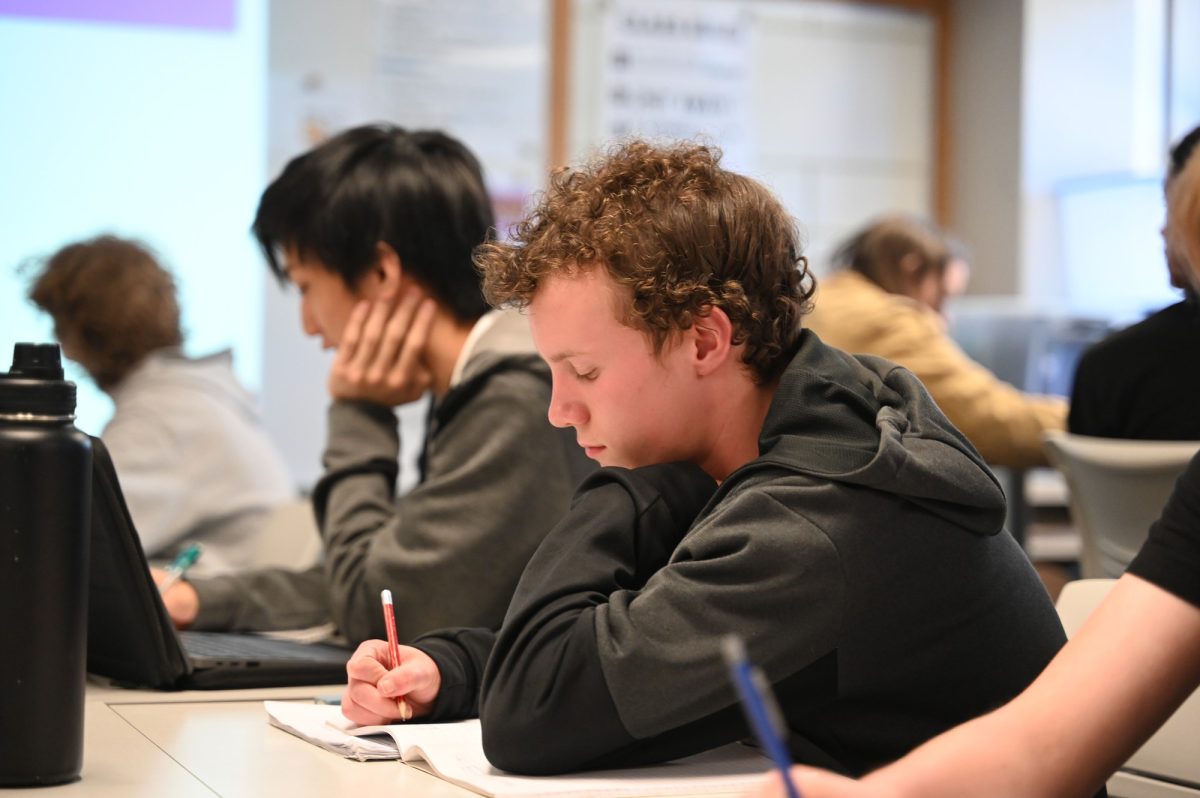When Governor Greg Abbott signed House Bill 1481 on June 24 requiring schools to prohibit students from using personal devices during the school day, this campus was already prepared. RHS will be continuing its Yondr policy from last year where students have to lock their devices in a pouch during the school day.
HB 1481 prohibits students from using personal communication devices such as phones, smartwatches, wireless earbuds, and iPads on school property during the school day. Lawmakers said the measure was needed to reduce digital distractions, recover lost instructional minutes, and raise student achievement.
“We were kind of ahead of the game,” Principal Chris Choat said. “The whole intent of starting Yondr pouches last school year was to save instructional time. Phones were decreasing class time tremendously, and this tool has helped us regain it.”
This year, the consequences for violations changed. A second phone offense now makes a student ineligible for semester exam exemptions, which are normally awarded for strong academic performance and good behavior.
“We know exemptions are important to students, so it’s another reminder to follow the law and our expectations with devices,” Choat said.
AP Environmental Science teacher Tony Strohmeyer said the pouches gave them more time to teach and his classroom benefited from them almost immediately.
“I’d probably say about 90 percent of the time students kept their phones in the pouches,” Strohmeyer said. “It made a big difference. People actually talked to each other instead of just having their heads down on a phone.”
Choat said he credits the policy as a major factor in academic progress. State accountability ratings show the school is projected to earn an A, the only high school in the district with that distinction.
Students, however, are divided on the Yondr policy. Junior Addy Adenekan said the stricter rules make school feel too controlling.
“I don’t think it should be continued at all,” Adenekan said. “Students feel forced and restricted, and people are finding ways around it, like burner phones or magnets to unlock pouches.”
However, junior Malachi Castille said the pouches reduce distractions, improve focus and said helped with grades and behavior.
“I think the pouches are very helpful,” Castille said. “They’ve made the school better. No fights, people are paying attention more, and grades are probably better.”
Choat said enforcement will be more consistent this year. Staff members check students each morning to ensure devices go into pouches, and administrators conduct random classroom sweeps.
“If at any point teachers or staff start easing up, students are going to know and they’re going to slip,” Choat said. “We have to be consistent day to day throughout the whole year.”
Choat said because the law has raised safety concerns, such as parents worrying students might not be able to reach them during lockdowns, the school has prepared a plan to address those issues.
“If we ever had to lock down, the first thing I’d want to do is check on my kids,” Choat said. “We’ve built systems to quickly unlock devices so students can contact families once it’s safe.”
Choat said despite the debate over the pouches, the results speak for themselves. Teacher surveys reported that classrooms regained valuable instructional minutes, and state ratings showed academic improvement.
“I just hope students maximize their time here,” Choat said. “Instead of being concerned with a device, they can focus on what the teacher is teaching. That sets everyone up for success.”

